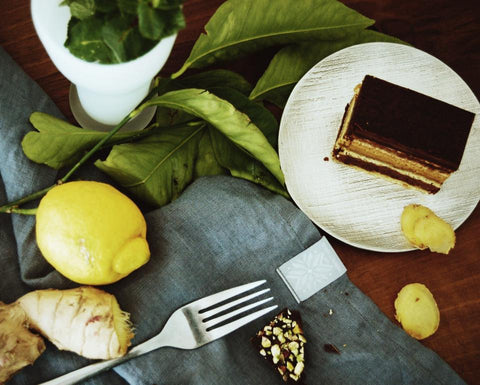
Dopo aver trovato un fantastico albergo in mezzo alla natura vicino a Merano (Se siete curiosi, si chiama Hotel San Luis), abbiamo discusso un po' del valore dell'esperienza di viaggio e dell'uso quotidiano degli oggetti.
Ognuno ha un certo budget per le ferie, poi può decidere se fare 10 giorni di visita e relax in un albergo accogliente e in ristoranti di buon livello, oppure 3 giorni di coccole nella natura, in un alloggio molto curato e rilassante con la presenza di Spa, un menù raffinato e bio, ecc.
Entrambe sono esperienze molto belle e piacevoli.
Lo stesso discorso vale anche per gli oggetti quotidiani: "Se questa teiera fosse più grande, potrei tenerla per gli ospiti"... è assolutamente vero: gli ospiti devono essere coccolati. Ma perché lasciarla in negozio se ci piace veramente. Perché scartare l'uso personale?
Infatti è altrettanto vero che la vita è troppo stressante e che abbiamo il dovere, non solo il diritto, di prenderci cura di noi, di ritagliarci uno spazio di felicità, pace e bellezza.
Questo non per mostrare agli altri quanto siamo fini e speciali.
Parlo di cose che arricchiscono la vita quotidiana. Non svalutatevi: preparate con calma il vostro tè preferito con la teiera e la tazza preferite. Non ci vuole neanche tanto tempo. C’è una piccola ricchezza in questo.
E, a proposito di ricchezza e povertà, ieri a una serata sull’alimentazione che si è tenuta al MUSE, si è parlato di mense e di banchi alimentari.
Mi sono domandata se la nostra attività aziendale fosse veramente etica.
Il rappresentante del Banco Alimentare del Trentino Alto Adige ci ha comunicato un messaggio importante:
"Il cibo scaduto è spesso ancora mangiabile. In casa noi stessi lo consumeremmo. Ma noi non lo accettiamo. Perché i bisognosi stanno già passando dei momenti difficili, e sono afflitti da enormi problemi di autostima: se vedessero che gli forniamo cibo di serie B, questo li farebbe sentire meglio o peggio?".
Il punto è che non c’è solo da riempire una pancia, ma anche da riempire un cuore di dignità, coraggio, fiducia, felicità, speranza.
È questo che ci fa capire che quel che facciamo non solo non è sbagliato, ma è importantissimo. Perché un mondo trascurato e negletto, un mondo imbruttito e gretto, in cui si risparmia sulla bellezza, è un mondo in cui i cuori sono a digiuno, la furia abbonda e non ci sono stimoli a migliorarsi e ad aiutare il prossimo a migliorare la propria condizione.
Un piccolo oggetto bello, usato quotidianamente, è una dichiarazione di intenti, una risoluzione, un patto col mondo, una presa di posizione: rendere il mondo più bello, per tutti, è una cosa giusta. Punto.
Piatto in stagno: Nousaku
Canovaccio in lino: not PERFECT LINEN
Bicchiere in vetro bianco: Sfera
Torta "opera": special thanks to Peccati di gola
--------------------------
On coming across a great hotel in a forest near Merano (i.e. “Hotel San Luis”), we ended up pondering over the value of travel and life experiences and of the everyday use of objects.
Everyone sets aside a certain budget for their holidays. Then one must decide whether a 10-day stay in a relaxing and cosy accommodation, dining in good restaurants, is preferable to allowing oneself 3 days of gastronomic and therapeutic pampering immersed in nature.
Both are beautiful and pleasant experiences.
The same applies to everyday objects: "A bigger teapot, I could use it with our guests” ...This is absolutely true: you must take good care of your guests. But why ruling out shopping for your personal pleasure? Life is too stressful and it is our duty – and not just an entitlement –, to take care of ourselves, to carve out a space of happiness, peace and beauty.
Not to show others how fine, privileged and special we are. I am talking about things that enrich everyday life, here.
Never sell yourself cheap: there is nothing wrong and everything right in making yourself your favourite tea with your favourite teapot and sipping your tea from a beautiful teacup.
It does not take much time either. There's depth and richness in this.
Speaking of wealth (and poverty), yesterday we attended a MUSE event for the education and sensitization of the public on food-related matters (healthy and nutritious canteen menus, food banks, etc.).
This started me thinking about the ethicalness of our business.
A local representative of the Food Bank of Trentino Alto Adige explained to us that they would not accept expired food, even tough they would readily eat it at home. Their reasoning goes like this: people in need are already going through hard times and face enormous problems of self-esteem: would they feel better or worse if they should see that we provide past-their-best foods? Would they get the impression that others see them as past-their-best humans?
The point is that filling bellies is essential, but filling hearts with a sense of dignity, courage, self-confidence, happiness, and hope is of no less importance.
We now understand that what we do is honourable and useful. Because a world overlooked and neglected, an ugly and petty world, of cheap, shallow beauty, is a world where hearts are deprived and angry, where there is no incentive to improve ourselves and to help others to improve their circumstances.
A small and beautiful object, used daily, is a public statement, a resolution, a silent covenant with the rest of humanity: to beautify our world, for everyone, is the right thing to do. Period.
